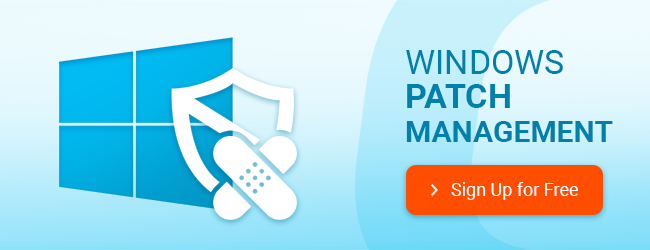IT professionals understand the necessity of patches, even if it's not one of their favorite things to do. However, if someone told you that there was an option that did almost everything for you, you'd probably be interested. A Windows patch management tool that will help you find and utilize patches to keep systems running smoothly, bug-free and safely.
Windows updates are a common example of a patch. If you use Windows, you are probably familiar with those messages from your operating system (OS) prompting you to accept them.With Windows 10, you need to restart your machine with updates.
Imagine yourself maintaining a car. Without regular check-ups, new tires and parts, you can still drive your car, however, it'll become dangerous to drive if you keep avoiding the mechanic. Eventually, the car may break down or cause an accident. Get the analogy?
1. Gain Control Over Windows Patching Servers.
Patch management tools are meant to integrate with your current patching system to automatically update your patches on a schedule that fits your needs. It should allow you to create various schedules for different groups or computers within the system and network.
2. Deploy Automated Windows Patch Management.
Patch management shouldn't be difficult, and it should be automated, so you can set the parameters and be confident they are running in the background when they're supposed to.
3. Utilize Third-Party Software Patch Management.
Along with specific operating-system patches, you should have Third Party Options should be available. It's the only way to keep an integrated system safe and fully functional.
To learn more about patch management and use Comodo patch management for free, visit: https://one.comodo.com/patch-management/windows-patch-management.php

Effective Patch Management Strategy Prevents Security Hacks
The Data Breaches Cost of US Businesses in 2017
The things You Need To Know About Security Patch Management
Why do you need Automated Patch Management. Reasons Explained
Add new comment